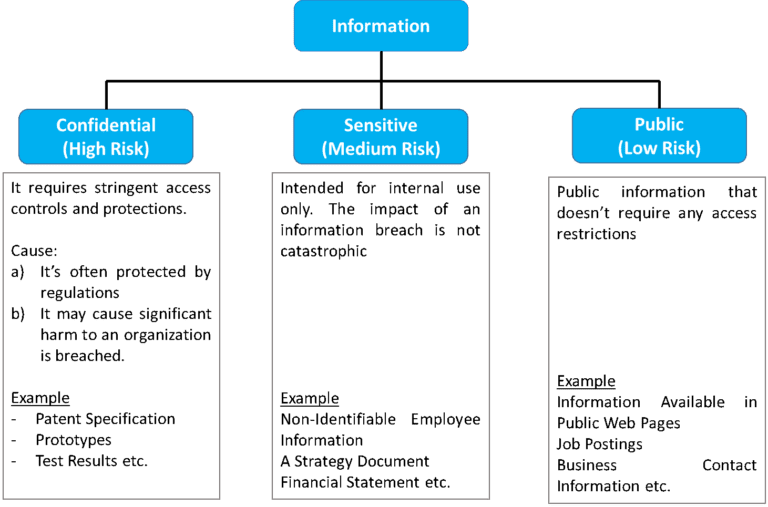Why Information Classification is Essential for Organizational Security and Compliance
Information classification is a very important process that every organization should utilise, regardless of the size. You may think, why does information classification matter? Failing to classify information can lead to many organizational difficulties.
Unclassified information is improperly organised which means there is no way to ensure that information is actually being safeguarded as it needs to be. The result is information that sometimes may be insecure and other times might be too secure. Being as secure as it needs to be is always the aim, but being too secure can hinder day-to-day processes.
For those reasons information classification is become one of the important priorities for all organizations.
Definition
Information classification is the process of sorting information in different categories.
Various computing devices navigate through folders such as document, music and pictures. In the context of business, financial document shouldn’t be mixed up with sales and marketing campaigns, instead they should be kept separated in dedicated folders where the appropriate team can find them easily.
Classification
There are different kinds of classification mechanisms available in the industry. Most often, information gets classified based on its sensitivity level, characteristics (e.g. type of information, contents etc.). The most common level of information classification is,

Importance of Information Classification
1. Consistency And Improved Understanding
Everyone aware of,
The level of sensitivity of information
The level of risks
The consequences if it is leaked
